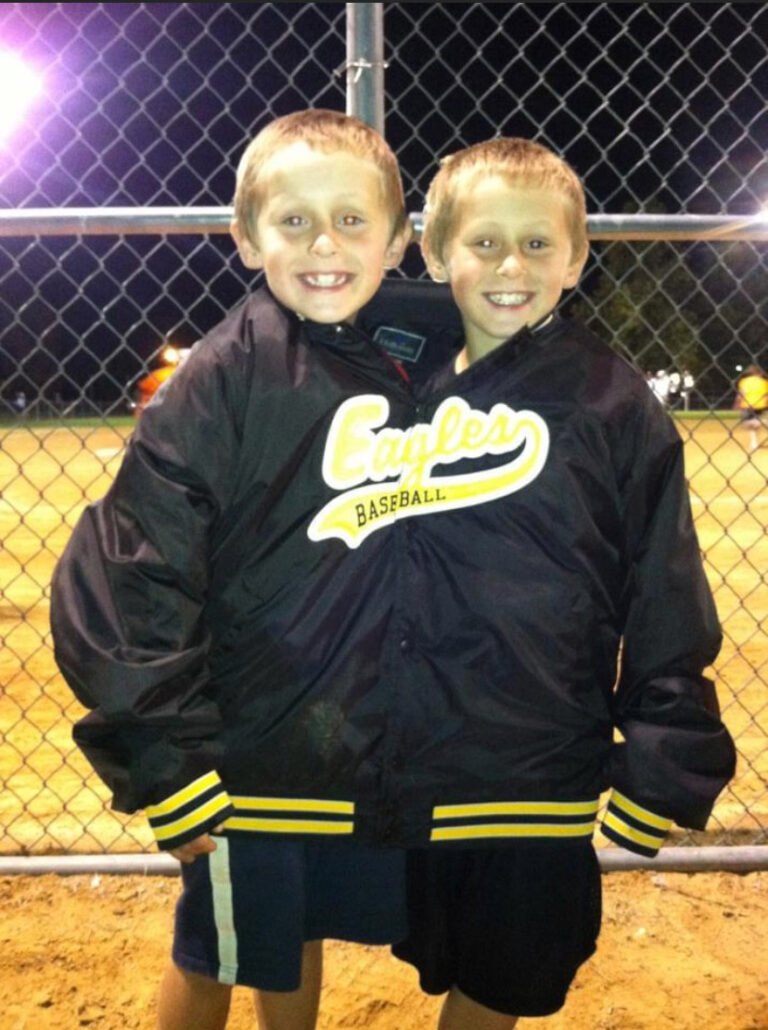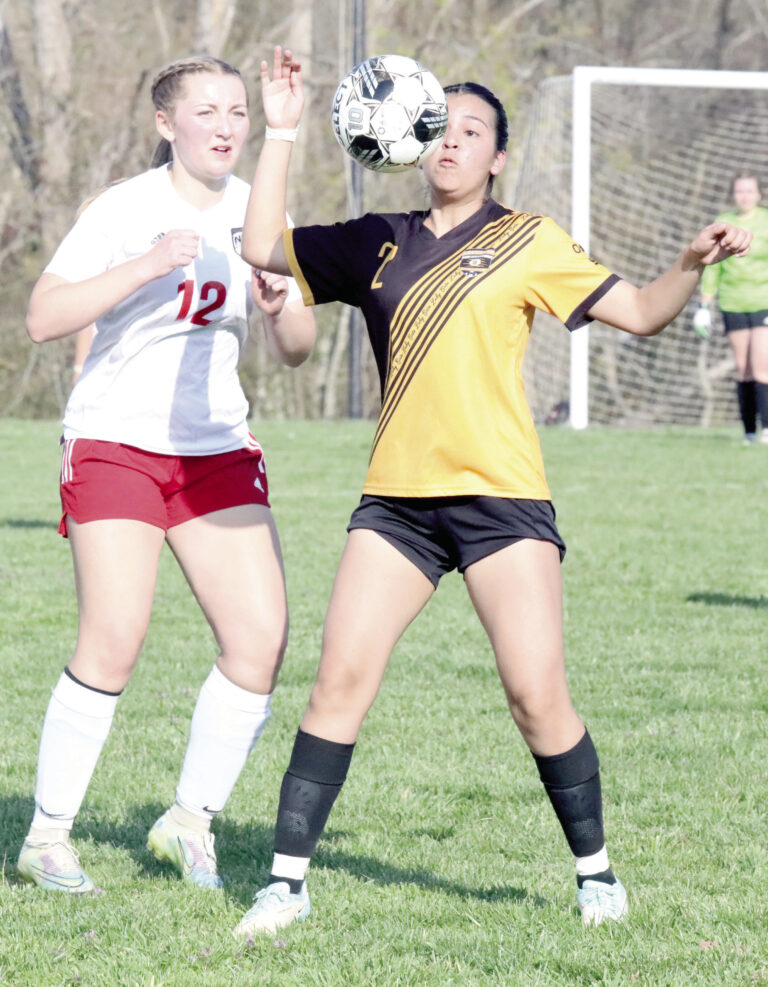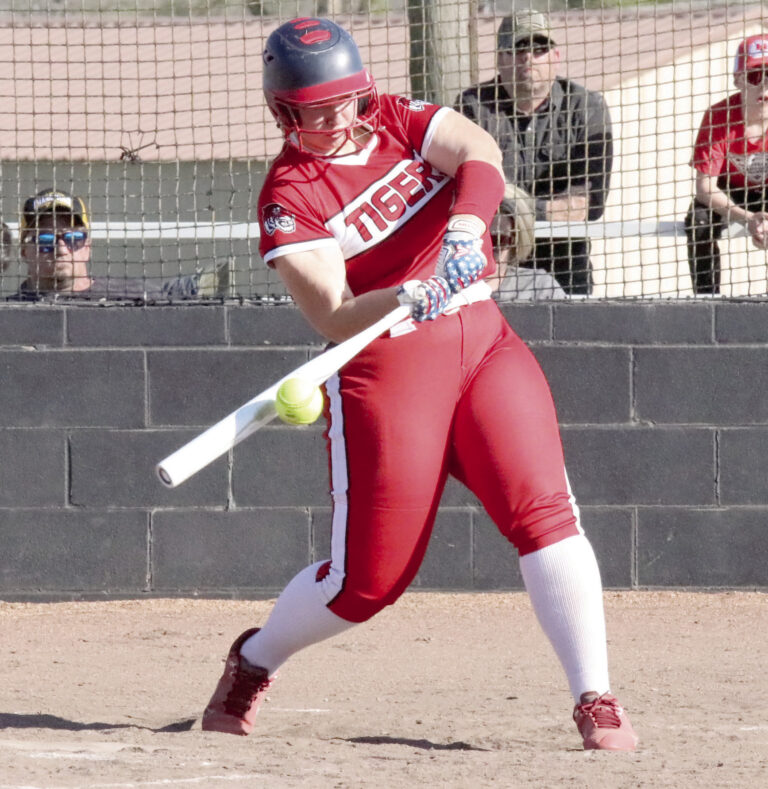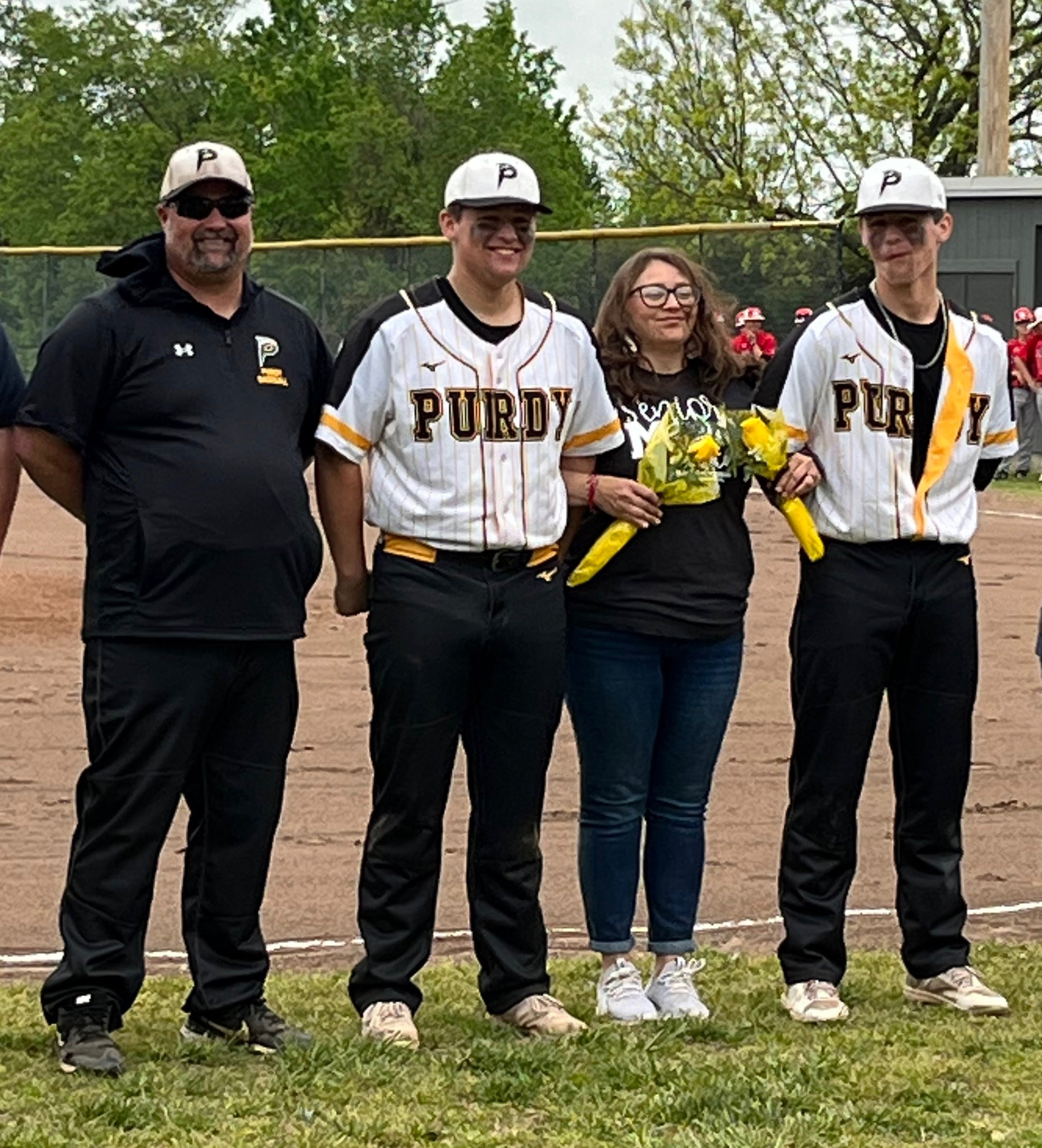

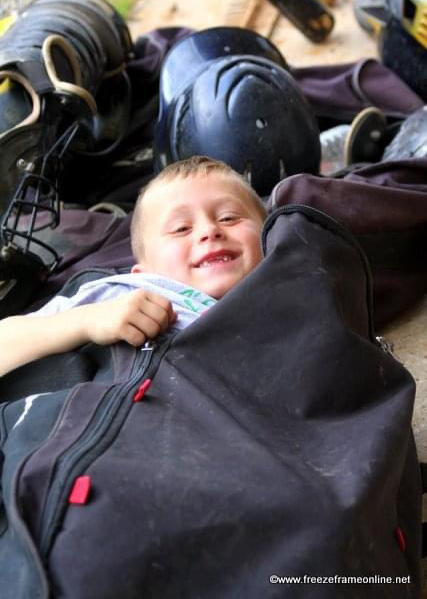
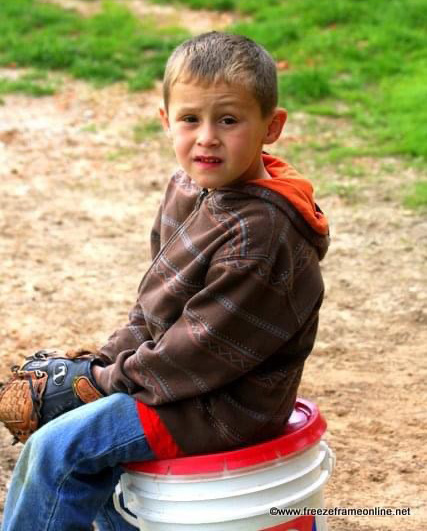
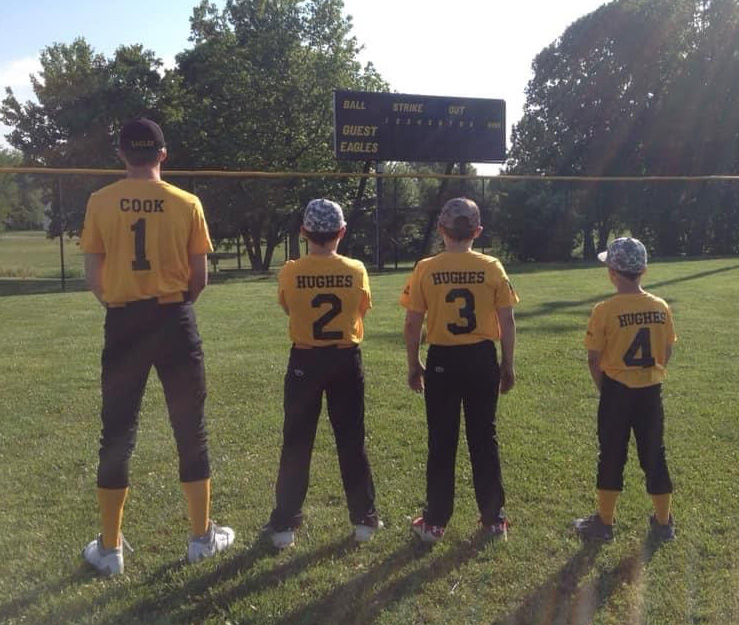
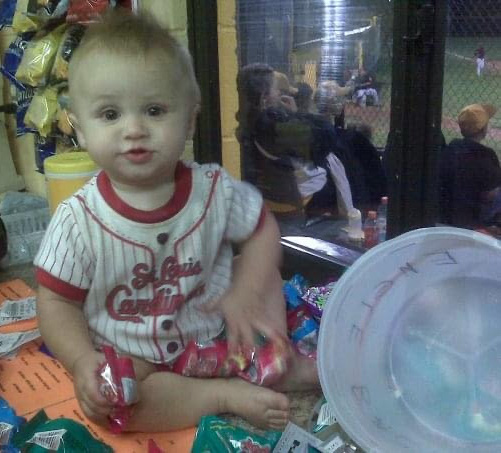
BY KYLE TROUTMAN ktroutman@cassville-democrat.com
Purdy fall baseball has begun, and fans of the Eagles will notice a major difference in this year’s roster — only one Hughes listed.
For eight of the last nine years, Purdy Coach Joshua Hughes has had a son, or two, playing for him. With twins Trey and Travis Hughes graduating in the spring, Joshua said he is adjusting to getting back to coaching without his kids in the dugout.
A coach in the making Joshua grew up in Wheaton and played Legion baseball as a youth in McDonald County, later attending St. Mary College in Leavenworth, Kan., where in his junior and senior years, he got his first taste of coaching.
“After I met my wife and came down here, Wheaton called to see if I could coach baseball,” he said. “I did softball in the fall 2003 and baseball in spring 2004. In the summer, I coached a 14U travel team of kids from across Barry County. Two of those kids were from Purdy, and their dad asked if ‘d be interested in coaching at Purdy.
“I interviewed, and at that time I had a Bachelor’s in psychology and worked at a mental health center. So, I got on as a full-time substitute and baseball coach and went back to school for a teaching degree.”
Joshua and his wife, East Newton graduate Misty Hughes, met through mutual friends on Easter weekend of Joshua’s senior year in college. The twins were babies when Hughes was coaching at Wheaton, and Misty had a son, Hunter Cook, who was five years their senior. The couple’s youngest, Easton Hughes, attends Cassville, as he wanted to play football.
Players in the making
Misty said Hunter started baseball around 8 years old, coached by Joshua since day one. The same applied to Trey and Travis.
“The twins started playing summer league when they were 4, then got into more travel ball when they got to 9U,” Joshua said. Their eighth-grade year was one of Purdy’s best ever in 2019. We graduated three All-State players, and some kids above them could play, so they did not start varsity right away. But, I was excited to have them there. When they were both in elementary school, they’d come out to practice. Now, they were in uniform.”
Travis played some in his freshman season, but Trey did not get varsity play, which Joshua said was best for that team at the time.
“It was tough, but exciting, and there’s a lot of good,” he said. “We lost when we didn’t think we would [in their senior season], but I look back at all the good stuff, like hitting home runs, pitching well or making a nice play. As a dad, I’m happy to see their success, but as a coach, I still wanted more.
Joshua said all of his boys have had their moments on the field, especially a couple of the twins’ homers.
“With Trey, what sticks out is his walk-off home run as a junior against Southwest,” he said. “With Travis, I don’t remember if it was his first high school home run, but as a sophomore, he hit a grand slam against one of the better players in the conference versus Galena. There were seniors on base ahead of him, and you could see them accepting him as part of the team.”
Coach dad
Coaching his own sons, Joshua put an emphasis on fairness to them and other players on the team, and very often, that manifested itself in higher expectations.
“[In Hunter’s] junior year, the night before the first practice, he said he didn’t want to play baseball because his expectations from coach were kind of high,” Misty said. “That first day of practice, he asked to be a manager, but before the end of the school day, he asked to be checked out so he could go home and get his ball gear — he wanted to play.
“Travis made the comment to me one time he didn’t listen as well to Josh as a coach because he just hears dad. After that, Josh started using his assistants more to talk to the boys on the field.”
“Sometimes it was tough because dad was so much harder on us because we were his kids,” Trey said.
“Going into my freshman year, I had a lot of people saying I wouldn’t play because I was the coach’s son,” Travis said. “I knew I had to work hard, and the first game of freshman year, he said I was the only one who stood out. I remembered that through all four years.”
Joshua said he was fully aware of his higher expectations for his boys, something he felt he had to do with having his kids on the team.
“Eight of the last nine years I have coached one or two of my boys, and it’s nice to have a kid on the field because you’re always there,” Joshua said. “Easton also plays baseball for Cassville, but because I am still coaching at Purdy, I will miss some of his games.
“But, I also don’t have that dynamic of having kids on the field. Going back to not having to manage that dynamic will make things more normal for all the players and their parents.”
Travis said it was exciting in sophomore year when Trey began playing varsity with him, but junior and senior years presented challenges.
“Junior year was tough because I kind of started to get an ego and started to argue a lot,” Travis said. “I’ll never say it to his face, but my dad was always right when it came to baseball stuff.
“Senior year was supposed to be our biggest, and he knew what we could do. It was also one of our biggest years competing [for positions], but through those ups and downs, we all knew who we represented.”
Baseball at home? Mom says no
Navigating a father coaching all his sons, Misty was quick to make a rule in the Hughes home — no baseball talk in the house.
“They talk baseball on the bus, at school and on the field, but not at the house,” she said. “When I made that rule, Josh said his dad always talked to him about baseball at home, but because he’s the boys’ father, they get a double dose of coach and dad. Sometimes talk ends up in fights, so I tell them to get in the truck and go to the ballfield if they want to talk baseball. Most players can be mad at a coach or game or practice but don’t have to live with their coach. For our own sanity, not in the house.”
Joshua recognized the ubiquity of baseball, and with respect to the family, made sure he was a father as he needed to be, like his was to him.
“My dad was a big influence in my life, and his love of baseball changed me,” he said. “We are huge Cardinals fans and still talk about the games until 11 or 12 at night.
“[Talking baseball at home with my boys] always led to an argument or a fight. [Misty] says I don’t do as good a job being a dad when I have my coaching hat on, but a lot of times, it’s harder on them because I don’t want anyone to think I’m playing favorites.”
Trey said at times, to follow mom’s rule, the boys would take a drive or go somewhere else to converse.
“Mom didn’t want to hear about it all the time, so we’d have to go in private to talk baseball with dad,” he said. “If mom hears the first part of the conversation, normally in the kitchen because that’s where dad does stats, we’d have to go where we could be quiet or just get in a vehicle and go on a drive.”
Travis said his mom always told him when they come home, it’s family time, though that was more challenging for some.
“I think my dad struggled with that most because he didn’t get that one-on-one time with us with the team all the time,” he said. “But we all would get a bit rowdy when we talk about it.”
More than a family
An integral part of Purdy baseball over the last decade-plus, the experience last year of the twins graduating has left a bittersweet taste in everyone’s mouths.
“It did not really hit me that this was their last go until senior night,” Joshua said. “That was my opportunity to be just a dad on the field. When we lost in districts, they and the other seniors were devastated. I kept it together pretty good, but when I walked away from them, it felt like someone was punching me in the gut.”
Part of that punch, Misty said, is because the family’s routine has been so baseball-centered.
“The twins were born a year before Josh started coaching, and day one I was bring them in the double stroller to games,” she said. “Hunter was 5 at that point, so he was already in the dugout learning. All the boys learned a lot of baseball at a young age and saw a lot most kids aren’t exposed to, like reading pitches and seeing the ball off the bat.
“All the milestones, like 100 wins and on, they were there for that, and they got more quality time learning from him behind the scenes. They’ve been part of the program long before they could be in the program.”
Now that no Hughes children are on the team, Misty thought she would take a step back, but it turns out to not be that easy.
“I told Josh once they were old enough to go to the ballfield by themselves, they wouldn’t see me for a while,” she said. But, I couldn’t stay away either, and still can’t. I’m going to Easton’s football games, but I still go to our home games. We have a lot more boys than just our four, and we still see them all as little boys. It’s hard to see kids in the positions the twins played, or wearing their numbers, and it’s harder this time because we don’t have any kids playing.
“I’m no longer mom, just the coach’s wife. That hits a little different but one thing I’ve always said is when it’s me on the other side of the fence, Josh is always right, and I never question him. I may ask questions, but just to understand. On my side of the fence, it’s a different story.”
Another aspect of the change Misty has come to enjoy is the realization of how big their baseball family still extends.
“We’ve made lots of friends and memories, like when Josh reached his 500th win,” she said. “We were hoping it happened the night it did because we were playing Southwest at home in 2022. The day of that game, I didn’t tell Josh, and people showed up we hadn’t seen since their kids graduated. When Josh noticed all the people, he finally figured out something was going on.
“That brought tears to my eyes because people see the wins and losses but they don’t see the family and friends, so to have so many come back for that 500th win — we wouldn’t have that without baseball. It showed how important baseball was to the community and how important all those people were to us.”
Trey said he still longs to be on the field in the Black and Gold, and he will miss those memories made over so many years.
“Definitely playing the game is what I’ll miss most,” he said. “We play in an amateur league in Arkansas, and some of those older guys played for my dad. It’s great hearing those stories and getting to stay in the game and in shape.
“I’ll also miss being on the team and how fun games and practices are if you have a great team and great coach. It was honestly a joy. I was concerned to play for my dad and with my brother, but at the same time, it was great. It’s something I did not want to miss out on, and my relationship with my brother is great on and off the field.”
Part of what the family enjoyed over the years was their inherently competitive natures — all of them.
“We are very competitive,” Trey said. “Our entire family is. One time, I was doing a [TV news] interview in the middle of the spring season and I said Travis was cocky and big-headed, but we both are; just him a little more. When we watched it later, the next clip was him hitting a home run off one of our guys in practice, running around the bases singing. Every one of us is competitive, and my dad may be the most competitive of all of us.”
Joshua said when it comes to the four sons, it can get feisty.
“All four of them are very competitive,” he said. “The other night we went to Cassville to play slow pitch softball, and they are very competitive. It’s not uncommon for them to compete at anything, and even their younger brother half their size tries to fight and compete. They also do very well when competing together against someone.”
Futures chosen, lessons learned
After graduation, the Hughes twins are pursuing different paths. Trey is attending Crowder College in Neosho, pursuing a teaching degree and wanting to coach, and Travis has joined the Marines.
“Trey going as a coach and teacher, he’s seen we haven’t always been well off but have managed,” Joshua said. “He says he will replace me, but he graduates in four years and I still have 10-12 years left. He will be a great coach. He’s had to learn different ways to do different skills, versus Travis’ more natural way, and that will make him a great coach and teacher because he knows multiple ways to get results.
“The military had never crossed my mind [for Travis], but as an American who loves his country, I’m so proud of him choosing that career path. I haven’t had any fears about it yet, but if he retires after a full career or does just four years, it will make him a better man, and that’s all you can ask for.”
Making better men is a byproduct of good coaching, and Hughes hopes he has done his boys and all his other current and former players justice in that regard.
“I hope they become good fathers, husbands, community members, hard workers and be passionate about something based on what they saw of my passion and desire to be the best I can be,” he said. “I hope that for all my ball players. They made me a better coach, but all my players have challenged me or pushed me to be better. One thing I’ve always done to help them is I want to put them in situations to fail when it’s OK, so when the time comes to perform, it will be easy because they’ve already had that hard scenario prior.” Along with the baseball knowledge, Trey said over the years he has picked up on much more through the game.
“I picked up a lot from him on coaching and respect,” he said. “We always think it’s funny you see so many fights in the MLB, and dad always said if you start a fight, you’re on your own, but if you do something accidentally and someone starts one with you, we’ll all have your back. If you make a fool of yourself, you have to get yourself out of the hole you dug. He also taught us how to play the game right.”
Travis said the lessons he learned are so vast, it was difficult to pinpoint the best ones.
“Play your own game,” he said. “Don’t play to anyone else’s standards but your own. Just do what you can do. There’s a ton more lessons. There’s always lessons to be learned in baseball, especially with my dad.”
Travis aims to use his lessons learned and his determination to take on a career in the Marines, something he has considered since he was young.
“Since I was 8 or 9, I always wanted to join the military,” he said. “It was always the Army because my grandpas were in the Army. But, I always say I want to be the best and toughest, and I kept hearing the Marines go through the toughest training. It sounded like something I could accomplish.”
As for Trey, though he is following in his father’s footsteps, he said it was only recently that decision was finalized.
“I always wanted to be a pilot, but as I got older I realized what I actually wanted to do,” he said. “I coached first-grade summer ball and loved it — a lot — from the practices to the games to talking with the parents. I didn’t really expect to like coaching as much as I did, but I did.
“I had a serious conversation with my dad about it and he said he didn’t want me to just do what my parents do because they did it, but it would be neat if I became his assistant and took over when he retires. I think that would be awesome.”

